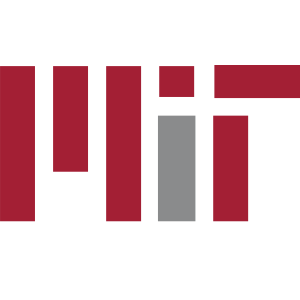Massachusetts Institute of Technology: Statistics
Updated:


| Position | Category |
|---|---|
| #8 of 14,131 | In the World |
| #6 of 2,597 | In North America |
| #6 of 2,496 | In the United States |
| #2 of 88 | In Massachusetts |
| #2 of 5 | In Cambridge |
| #1 of 6,713 | For Physics |
| Top1-3 | For 49 other topics |
Quick Review
- Acceptance rate
- 5%
- Undergraduates
- 4,576
- Graduates
- 7,344
- Male:Female Ratio
- 56:44
- Control
- Private
not-for-profit - Highest Degree
- Doctor's degree
- Website
- mit.edu
Massachusetts Institute of Technology Acceptance rate and admissions statistics
Massachusetts Institute of Technology has an acceptance rate of 5% and is among the top 1% of the most difficult universities to gain admission to in the United States. The university reports the admission statistics without distinguishing between local and international students.
| Total | Men | Women | |
|---|---|---|---|
| Acceptance Rate | 5% | 4% | 7% |
| Applicants | 26,904 | 16,568 | 8,939 |
| Admissions | 1,274 | 601 | 630 |
| Freshmen enrolled full time | 1,091 | 551 | 540 |
65 enrolled exclusively in distance education.
SAT scores
Among admitted applicants
903 or 83%
submitted SAT
25% of them
had 1510
or below
75% of them
had 1580
or below
Typical SAT scores of first-years in Massachusetts Institute of Technology are 1510-1580 (middle 50% range).
ACT scores
Among admitted applicants
334 or 31%
submitted ACT
25% of them
had 34
or below
75% of them
had 36
or below
Typical ACT scores of first-years in Massachusetts Institute of Technology are 34-36 (middle 50% range).
Admissions requirements
| Recommendations | Required |
|---|---|
| SAT/ACT | Required |
| Secondary school record | Required |
| College-preparatory program | Considered but not required |
| Secondary school GPA | Considered but not required |
| Secondary school rank | Considered but not required |
| TOEFL | Considered but not required |
| Formal demonstration of competencies | Neither required nor recommended |
| Other Tests | Neither required nor recommended |
Enrollment demographics by race or ethnicity
| Nonresident Alien | 3505 (29%) |
|---|---|
| White | 2794 (23%) |
| Asian | 2501 (21%) |
| Hispanic | 1148 (10%) |
| Two or more races | 839 (7%) |
| Black or African American | 606 (5%) |
| Race or Ethnicity unknown | 515 (4%) |
| American Indian or Alaska Native | 7 (0.1%) |
| Native Hawaiian or other Pacific Islander | 3 (0%) |
Costs per year: Tuition, Housing, Fees
The average net cost to attend Massachusetts Institute of Technology is $21,519 per year, calculated as the sum of the average cost of tuition, room and board, books, and supplies, reduced by the amount of average financial aid received.
The final cost of attendance varies for each student based on household income, residency, program, and other factors.
Average costs by household income
| <$30K | $5,347 |
|---|---|
| $30-48K | $1,820 |
| $48-75K | $4,621 |
| $75-110K | $13,696 |
| $110K+ | $46,627 |
Tuition and fees
| Undergraduates | Graduates | |
|---|---|---|
| Tuition in-district | $59,750 | $59,750 |
| Tuition in-state | $59,750 | $59,750 |
| Tuition out-of-state | $59,750 | $59,750 |
| Fee in-district | $406 | $3,643 |
| Fee in-state | $406 | $3,643 |
| Fee out-of-state | $406 | $3,643 |
Room and board costs
| Dormitory capacity | 7,610 |
|---|---|
| Combined charge for room and board | $16,000 |
| Room charge | $12,380 |
| Meal charge | $7,010 |
Massachusetts Institute of Technology majors
Massachusetts Institute of Technology has granted 1,146 bachelor's degrees across 34 programs, 2,031 master's across 38 programs, and 684 doctorate degrees across 37 programs. Below is a table with majors that lead to degrees at Massachusetts Institute of Technology.
| Major | Bachelor | Master | Doctoral |
|---|---|---|---|
| Management Science | 7 | 716 | 13 |
| Computer Science | 342 | 265 | 68 |
| Mechanical Engineering | 137 | 149 | 53 |
| Electrical and Electronics Engineering | 75 | 78 | 52 |
| Systems Engineering | 178 | 6 | |
| Aerospace, Aeronautical, and Astronautical & Space Engineering, General | 56 | 68 | 38 |
| Financial Mathematics | 13 | 132 | |
| Mathematics, General | 86 | 19 | |
| Bioengineering and Biomedical Engineering | 53 | 3 | 46 |
| Physics, General | 50 | 52 | |
| Chemical Engineering | 24 | 37 | 36 |
| Cognitive Science, General | 57 | 13 | 10 |
| Management Sciences and Quantitative Methods, Other | 14 | 66 | |
| Chemistry, General | 27 | 1 | 47 |
| Architectural and Building Sciences & Technology | 56 | 5 | |
| City & Urban, Community, and Regional Planning | 7 | 43 | 10 |
| Econometrics and Quantitative Economics | 4 | 32 | 19 |
| Materials Engineering | 24 | 4 | 26 |
| Biology & Biological Sciences, General | 16 | 1 | 32 |
| Digital Communication and Media & Multimedia | 24 | 17 | |
| Nuclear Engineering | 9 | 16 | 12 |
| Real Estate Development | 37 | ||
| Economics and Computer Science | 30 | 3 | |
| Civil Engineering, General | 4 | 22 | 5 |
| Computational Biology | 20 | 4 | 6 |
| Architecture | 8 | 14 | 7 |
| Environmental & Environmental Health Engineering | 7 | 15 | 7 |
| Neuroscience | 11 | 1 | 17 |
| Mathematics and Computer Science | 26 | ||
| Computer and Information Sciences, General | 11 | 12 | |
| Operations Research | 7 | 16 | |
| Chemical and Biomolecular Engineering | 14 | ||
| Science, Technology and Society | 7 | 6 | |
| Geology & Earth Science, General | 4 | 1 | 7 |
| Oceanography, Chemical and Physical | 2 | 10 | |
| Political Science and Government, General | 3 | 8 | |
| Liberal Arts and Sciences & Liberal Studies | 10 | ||
| Transportation and Highway Engineering | 7 | 2 | |
| Journalism, Other | 8 | ||
| Linguistics | 2 | 5 | |
| Philosophy | 1 | 6 | |
| Mass Communication & Media Studies | 2 | 3 | |
| Atmospheric Sciences and Meteorology, General | 1 | 3 | |
| Geophysics and Seismology | 1 | 3 | |
| Music, General | 3 | ||
| Artificial Intelligence | 2 | ||
| Creative Writing | 2 | ||
| Planetary Astronomy and Science | 2 | ||
| History, General | 1 | ||
| Meteorology | 1 | ||
| Grand Total | 1,146 | 2,031 | 684 |
Massachusetts Institute of Technology has a graduation rate of 96%, which is among the 2% highest for universities in the US.
| Total | Men | Women | |
|---|---|---|---|
| Graduation rate | 96% | 95% | 97% |
| |||
Publications & Citations
Massachusetts Institute of Technology is a world-class research university with 315,593 scientific papers published and 20,571,074 citations received. The research profile covers a range of fields, including Engineering, Physics, Chemistry, Quantum and Particle physics, Biology, Computer Science, Environmental Science, Liberal Arts & Social Sciences, Materials Science, and Organic Chemistry.
Publication / Citation count by topic
Annual publication & citation counts
| Year | Publications | Citations |
|---|---|---|
| 1992 | 3396 | 118228 |
| 1993 | 3297 | 115172 |
| 1994 | 3323 | 122136 |
| 1995 | 3437 | 129717 |
| 1996 | 3710 | 137837 |
| 1997 | 3698 | 144540 |
| 1998 | 3783 | 159859 |
| 1999 | 3968 | 172978 |
| 2000 | 4021 | 186576 |
| 2001 | 4358 | 204883 |
| 2002 | 6538 | 285437 |
| 2003 | 5933 | 291146 |
| 2004 | 5753 | 303888 |
| 2005 | 6630 | 359918 |
| 2006 | 6444 | 390766 |
| 2007 | 6793 | 427849 |
| 2008 | 7007 | 466226 |
| 2009 | 8046 | 514595 |
| 2010 | 8280 | 567142 |
| 2011 | 9048 | 631103 |
| 2012 | 9358 | 685242 |
| 2013 | 9743 | 742648 |
| 2014 | 9811 | 794704 |
| 2015 | 9923 | 833473 |
| 2016 | 9675 | 867860 |
| 2017 | 9971 | 919429 |
| 2018 | 10595 | 1002330 |
| 2019 | 14537 | 1107910 |
| 2020 | 13166 | 1259657 |
| 2021 | 11653 | 1371635 |
| 2022 | 9780 | 1239126 |
| 2023 | 10572 | 1275162 |
| 2024 | 8387 | 1208520 |
Massachusetts Institute of Technology alumni
-
Benjamin Netanyahu

- Enrolled in Massachusetts Institute of Technology
- 1972-1975 graduated with Bachelor of Science in architectural engineering
- Occupations
- politiciandiplomatpolitical scientistmilitary personnelstatesperson
- Biography
-
Benjamin Netanyahu is an Israeli politician who has been serving as the prime minister of Israel since 2022, having previously held the office from 1996 to 1999 and from 2009 to 2021. Netanyahu is the longest-serving prime minister in Israel's history, having served a total of over 17 years.
-
Noam Chomsky

- Occupations
- writeranthropologistlinguistopinion journalistpolitical writer
- Biography
-
Avram Noam Chomsky is an American professor and public intellectual known for his work in linguistics, political activism, and social criticism. Sometimes called "the father of modern linguistics", Chomsky is also a major figure in analytic philosophy and one of the founders of the field of cognitive science. He is a laureate professor of linguistics at the University of Arizona and an institute professor emeritus at the Massachusetts Institute of Technology (MIT). Among the most cited living authors, Chomsky has written more than 150 books on topics such as linguistics, war, and politics. In addition to his work in linguistics, since the 1960s Chomsky has been an influential voice on the American left as a consistent critic of U.S. foreign policy, contemporary capitalism, and corporate influence on political institutions and the media.
-
Buzz Aldrin

- Enrolled in Massachusetts Institute of Technology
- Graduated with Doctor of Science in astronautics
- Occupations
- air force officerbusinesspersonastronautautobiographerscience fiction writer
- Biography
-
Buzz Aldrin is an American former astronaut, engineer and fighter pilot. He made three spacewalks as pilot of the 1966 Gemini 12 mission, and was the Lunar Module Eagle pilot on the 1969 Apollo 11 mission. He was the second person to walk on the Moon after mission commander Neil Armstrong. Following the deaths of Armstrong in 2012 and pilot Michael Collins in 2021, he is the last surviving Apollo 11 crew member.
-
Richard Feynman

- Enrolled in Massachusetts Institute of Technology
- 1935-1939 graduated with bachelor's degree
- Occupations
- inventorpoliticianuniversity teacherphysicistwriter
- Biography
-
Richard Phillips Feynman was an American theoretical physicist. He is best known for his work in the path integral formulation of quantum mechanics, the theory of quantum electrodynamics, the physics of the superfluidity of supercooled liquid helium, and in particle physics, for which he proposed the parton model. For his contributions to the development of quantum electrodynamics, Feynman received the Nobel Prize in Physics in 1965 jointly with Julian Schwinger and Shin'ichirō Tomonaga.





General info
| Alternative names | MIT M.I.T. |
|---|---|
| Founded | 1861 |
| Motto | mens et manus |
| Colors | cardinal red, steel gray |
| Academic calendar | September to May (September - December; January-May) |
| Total FTE staff | 14,181 |
| Carnegie classification | Doctoral Universities: Highest Research Activity |
Location and contacts
| Address | 77 Massachusetts Avenue Cambridge, Massachusetts, 02139-4307 United States |
|---|---|
| City population | 118,000 |
| Phone | 6172531000 |

